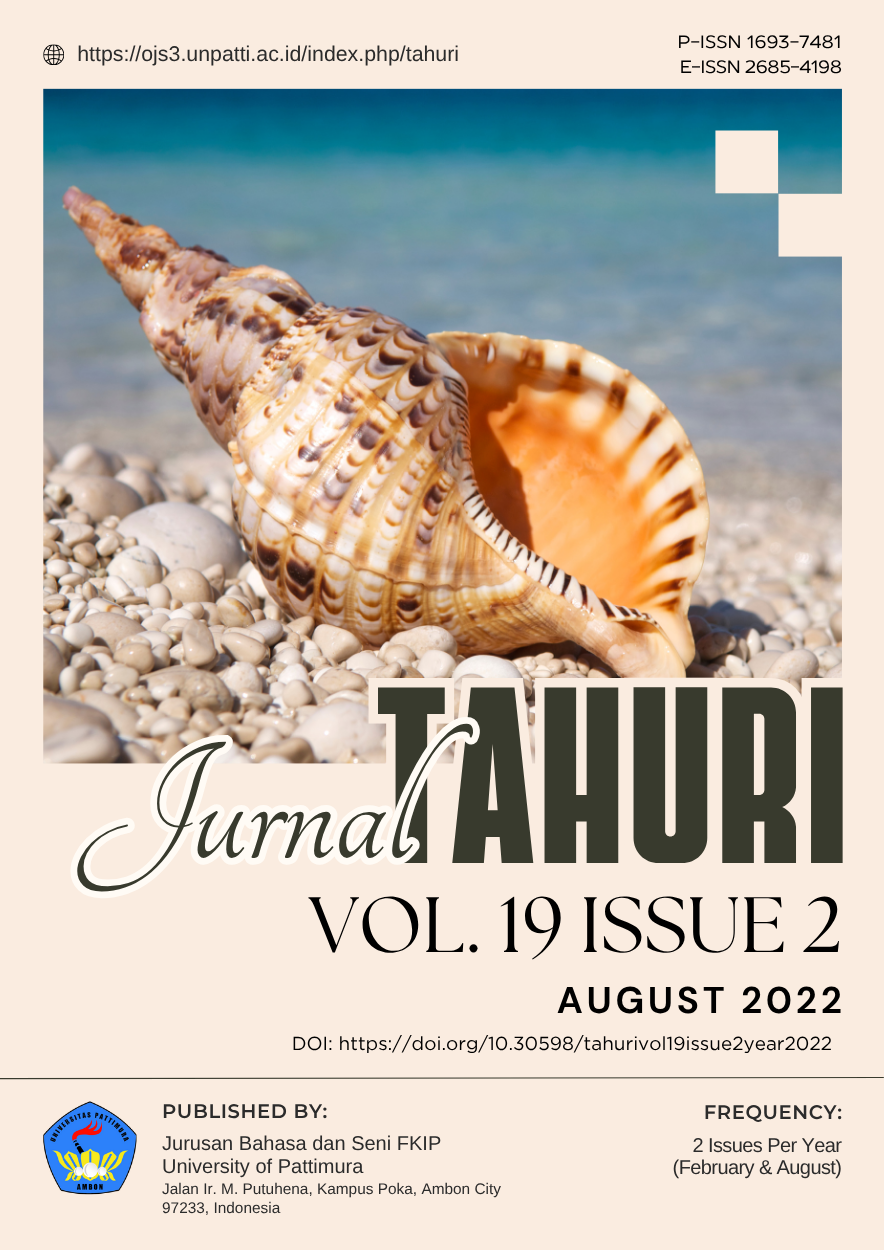| ..: MAIN MENU :.. |
| Register |
| Login |
| Reviewer |
| Focus and Scope |
| Editorial Team |
| Indexing |
| Contact |
| ..: SUBMISSION :.. |
| Author Guidelines |
| Submit Paper |
| Open Access Policy |
| Author Fees |
| ..: PUBLICATION :.. |
| Peer Review Process |
| Publication Ethics |
| Copyright Notices |
| Archiving Policy |
| Crossmark Policy |
| AI Tools Policy |
| Plagiarism |
| ..: ARTICLE TEMPLATE:.. |
| ..: INFORMATION :.. |
| Readers |
| Authors |
| Librarians |
| ..: TOOLS :.. |
| ..: STATISTIC VIEWS :.. |
|
|

The August 2022 issue of Jurnal Tahuri (Vol. 19, Issue 2) presents five research articles by Indonesian scholars, offering fresh perspectives on the dynamics of language, education, and culture in multilingual contexts. This edition highlights the intersections of language assessment, pedagogy, sociocultural traditions, and educational inequality in Indonesia. The first article examines practices, challenges, and needs related to Language Assessment Literacy among English teachers in Islamic secondary schools, shedding light on gaps between professional demands and available training. The second study explores translanguaging as a pedagogical strategy in multilingual English classrooms, demonstrating how teachers and learners negotiate meaning across linguistic repertoires. The third contribution focuses on mobile-assisted vocabulary learning, analyzing the use of HelloTalk by pre-service English teachers to expand lexical competence through digital interaction. Complementing this is a sociocultural investigation into integrating traditional Minangkabau performing arts, specifically Randai, with translanguaging pedagogy as a creative approach to English teaching. The issue concludes with a critical study on language ideologies and inequality, analyzing how linguistic hierarchies manifest in an elite multilingual school in Jakarta. Collectively, these articles underscore Jurnal Tahuri’s commitment to advancing scholarly conversations on language, identity, and education in Indonesia’s complex and evolving multilingual landscape.



